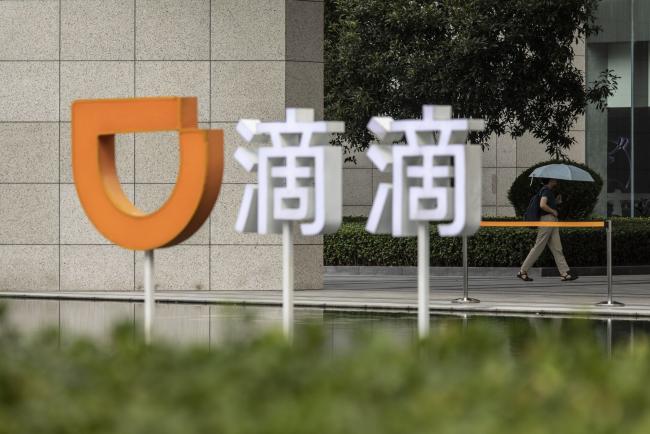(Bloomberg) -- Didi Global Inc. disclosed a $4.7 billion loss after revenues shrank in the September quarter, revealing the rising cost of a series of regulatory actions that will force China’s ride-sharing leader to shift its listing to Hong Kong next year.
Didi, one of the highest-profile targets of a broad Beijing campaign to rein in the country’s giant tech sector, reported $6.6 billion of sales, down more than 13% from the June quarter and 1.6% from a year earlier. The surprise disclosure comes as the company prepares to delist from New York.
The ride-hailing giant is planning to work with Goldman Sachs Group Inc (NYSE:GS)., CMB International and CCB International on the shift, which could be a so-called listing by introduction, people familiar with the matter said. That arrangement, which doesn’t involve any fundraising, requires little marketing and would allow U.S. investors to swap their shares for the new stock in Hong Kong.
Once hailed for ousting Uber Technologies (NYSE:UBER) Inc. from China, Didi has become one of the highest-profile targets of Beijing’s campaign to rein in its increasingly powerful tech sector. But it incensed regulators after going ahead with the New York debut despite concerns about the security of its data, triggering a series of probes that culminated in the forced delisting. Its shares slid more than 8% in New York.
Read more: Didi Sends Warning to China Investors Who Bet Worst Was Over
What Bloomberg Intelligence Says
Didi Global Inc.’s longer-term growth outlook is clouded by Chinese regulators’ crackdown on its use of consumer data, as restrictions could inhibit its ability to efficiently grow its core mobility business and introduce new products. Its near-monopoly of China’s $50 billion domestic ride-hailing market, which is expected to more than double by 2025, is a solid foundation for growth as long as Didi can navigate the regulatory situation. Yet its international ride-sharing business and other initiatives may continue to rapidly burn cash. A planned delisting from New York and listing in Hong Kong suggests a messy road ahead.
- Matthew Kanterman and Tiffany Tam
Click here for the research.
The unprecedented move underscored the depth of Beijing’s concern about the potential leakage of sensitive data to a geopolitical rival, as well as the extent to which the government will go to punish Didi for contravening its wishes. In Wednesday’s surprise disclosure, the company announced Alibaba (NYSE:BABA) Group Holding Ltd. Chairman Daniel Zhang had resigned from the board, to be replaced by a lower-ranking Alibaba executive.
The regulatory turmoil has both increased the cost of business for Didi and allowed rivals like Meituan to encroach on its market share. Didi posted a net loss of 30.4 billion yuan for the September quarter, down from a 665 million yuan profit a year earlier.
Spending rose 16% during the quarter after Didi was forced to comply with new requirements to better compensate its drivers and improve data governance. Worker rights protections for drivers were formalized into a set of guidelines from Chinese regulators in November. It also booked a 20.8 billion yuan investment loss, mainly from its nascent community group buying business, which focuses on intensely competitive hyper-local groceries.
It’s unclear if more punishments are in store for Didi, which is controlled by the management team of co-founder Cheng Wei and President Jean Liu and backed by big names including Alibaba and Tencent (HK:0700) Holdings (OTC:TCEHY) Ltd.
Beijing’s moves against Didi have been particularly harsh, even by the standards of a year-long crackdown that’s engulfed giants like Alibaba and Tencent. The Cyberspace Administration of China saw Didi’s IPO decision as a challenge to the central government’s authority, which led to the CAC, the Ministry of Public Security, the Ministry of State Security and several other agencies initiating on-site inspections at Didi’s offices in July.
©2021 Bloomberg L.P.

